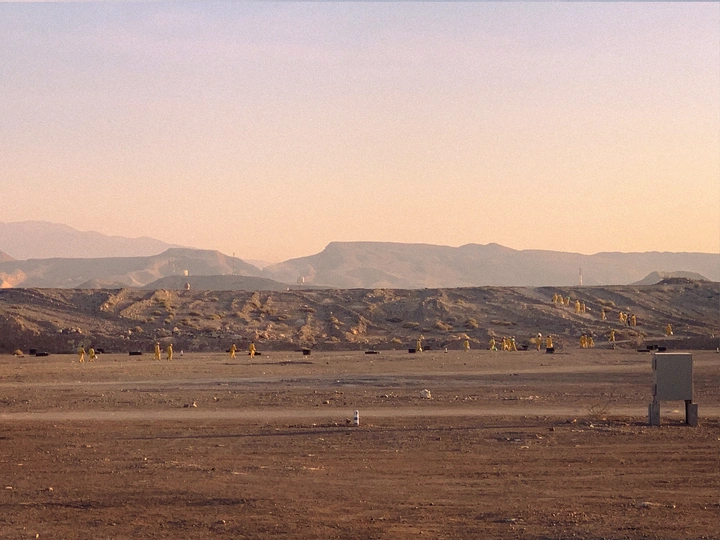Towards a New Shape of Thinking Space

Florian Scheucher is engaged in undisciplined spaces, their nomadic practice for spatial design and research. They release music under the name a wave, a mouth;
Their theoretical work revolves around an interrogation of the discipline of Architecture on a foundational level, and a participation in the discourse around decolonisation of the spatial disciplines. It traces the construction of a disciplinary epistemology, and a challenge to hegemonic patterns of perception as foundations of unjustified hierarchies. Starting from the observation that the discipline remains largely unjustified in its operation, and operates on maintaining a disciplinary status quo, they are interested in investigating how hegemonic forms of power and collectivity are linked to disciplinary behaviours, attitudes and beliefs. Within this they place specific attention to those forms of spatial production and consumption that are summarised as Architecture, and thus regarded as culturally significant, and those that fall outside of this categorisation.
In addition to their core research in the history and theory of Architecture, they have research interests in the links between cosmologies and culturally associated perceptions and productions of space, as well as Westphalian nationality and national identity as the only globally accepted form of collectivity, especially in relation to alternative, non-hegemonic, non-eurocentric and decolonial forms of collective organisation. A past project was concerned with regions of ambiguous national territoriality, with a focus on Lake Constance, and the institutional, political and identitarian prerequisites for, and effects of such ambiguity of nationality and territorial sovereignty.
Other key projects include the candidature for the curation of the Tallinn Architecture Biennale 2024, a proposal for the continued evolution of Gare d’Orsay in Paris, as well as the design for several public urban infrastructures in Taiwan.
If we as spatial practitioners and theoreticians are to remain relevant in a world that inevitably gravitates towards the dismantling of imperial systems of oppression, we must engage in a serious confrontation with our disciplinary history, our foundations in occidental patterns of thinking and doing, and with the inescapable tendency of Architecture to align with the interests of hegemonic power.
In what is to become a rigorous disciplinary epistemology of Architecture, and a proposal for a new shape of thinking, I argue that Architecture as a discipline is foundationally connected to the larger, violent structures of imperialism, colonialism and extractivism, not only in the more obvious material relationships, but also, and most importantly, in the epistemic structures in which space is being considered, produced, shaped and assessed. Following from there, and committing the discipline to a non-violent future, I intend to develop an epistemic framework along the following three relational axes:
(1) The relationship of space to occupation and spontaneous (mis-)use, in contrast to function and intended and prescribed use in traditional architectural practice.
(2) The relationship of space to the notion of the land, where the notion of the land allows the pre-existence of a fully formed spatial identity, and thus the unfolding of a reciprocal form of spatial production, in contrast to the site as neutral receptacle of, and the context as influence on the architectural object in traditional architectural practice.
(3) Spatial production as a continuous relational process without clearly delineated boundaries, in contrast to the concretely object-oriented process with clear temporal and authorial bounds in traditional architectural practice.